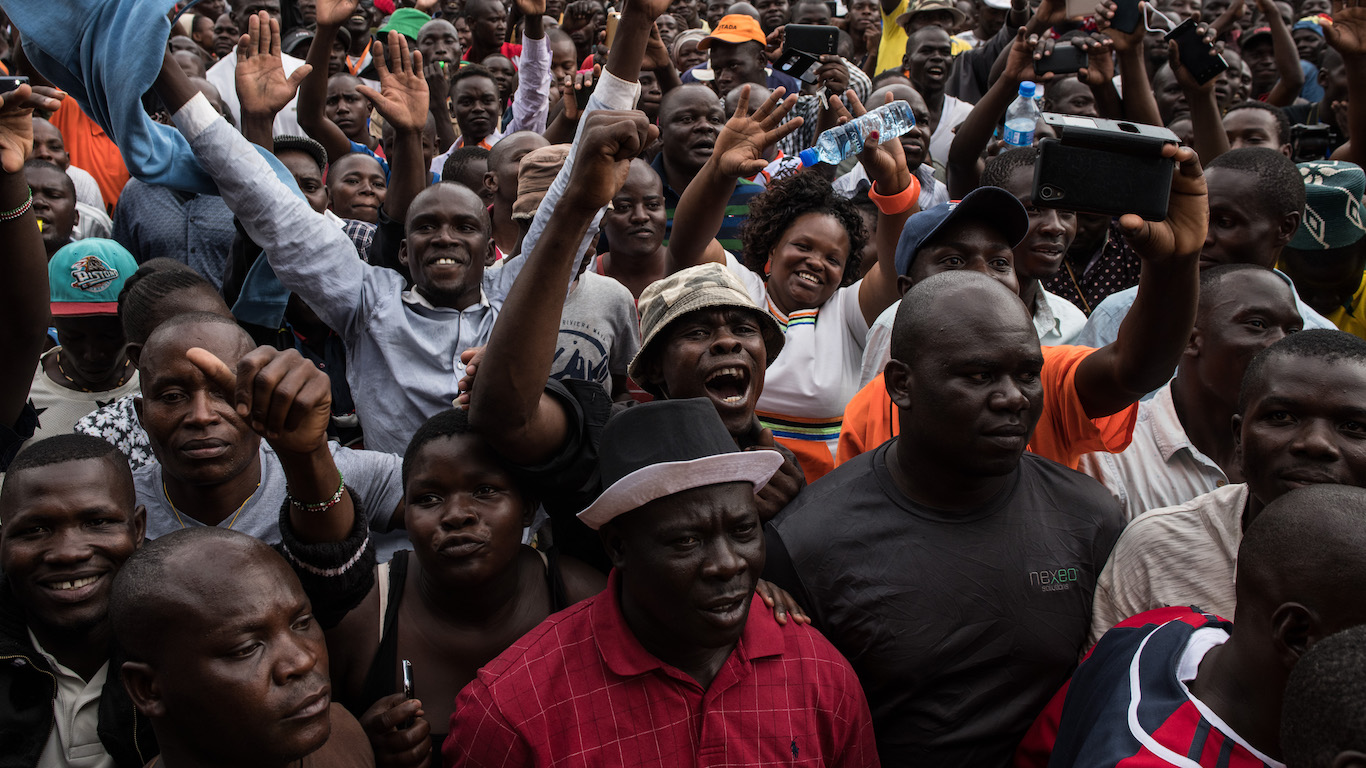Investing
Worldcoin Faces Another Hurdle as Kenya Suspends Eyeball Scans

Published:

Worldcoin, the controversial cryptocurrency project that aims to create a new “human identity and financial network” using retina scans, has faced another legal hurdle as Kenya has suspended its activities in the country. The move follows similar efforts by several other countries, which had previously voiced concerns regarding the project’s goal to process sensitive data at a vast scale.
On Wednesday, Kenya’s Ministry of the Interior issued a decree suspending Worldcoin signup, citing concerns about its activities’ authenticity, legality, security, financial services, and data protection. In an official announcement, the ministry said relevant agencies had begun investigating the project.
“Relevant security, financial services and data protection agencies have commenced inquiries and investigations to establish the authenticity and legality of the aforesaid activities,” interior minister Kithure Kindiki stated.
The suspension applies not only to Worldcoin but to any other entity engaging with the people of Kenya similarly. It will remain in place until the authorities determine no risks to the general public.
Previously, Kenya had numerous venues where individuals could visit an “Orb,” the company’s spherical iris scanners, to verify their World ID. However, due to overwhelming turnout, the stations were moved to a bigger ground in Kenya’s capital to accommodate the thousands of people streaming in.
Kenya was among the first countries to pilot the registration service in 2021. However, the authorities now see the suspension as critical for public safety and the integrity of financial transactions. The country’s office of the Data Commissioner was already assessing Worldcoin’s practices in Kenya to ensure compliance with the country’s laws.
Worldcoin, co-founded by OpenAI CEO Sam Altman and valued at over $2 billion, aims to create a “proof-of-personhood” network by registering verified humans through eyeball scans. The company has raised over $500 million and is developing an app that will link global IDs with Worldcoin tokens for payments and transfers.
The project has received notable criticism since its debut. Since Worldcoin scans people’s irises and eyes to ensure that the crypto is distributed fairly, some have expressed privacy and security concerns. The collection of biometric data has also raised questions about how this sensitive information will be stored, protected, and potentially used.
Furthermore, some have questioned Worldcoin’s methods of obtaining consent. A 2022 investigation by MIT Review found that Worldcoin used deceptive marketing practices, collected more personal data than disclosed, and failed to obtain meaningful informed consent.
There are also concerns that Worldcoin’s efforts to attract users through the promise of “free” cryptocurrency tokens may disproportionately target economically-disadvantaged individuals. Critics argue that the project may take advantage of vulnerable populations who require financial assistance in exchange for their biometric data.
Aside from Kenya, several other countries have also taken action against Worldcoin. Just last month, it was revealed that a German watchdog has been investigating the Worldcoin project since late last year due to concerns over its large-scale processing of sensitive biometric data.
Likewise, France’s privacy watchdog CNIL has recently said the legality of Worldcoin’s biometric data collection “seems questionable.” The watchdog also said it has been investigating the project along with the Bavarian state authority in Germany.
Furthermore, Worldcoin will not be available in the US. The project’s terms of service say Americans can’t use, buy or access the tokens. This includes US citizens, residents, anyone in the US, or companies based or registered in the US.
“WLD tokens are not intended to be available for use, purchase, or access by US persons, including US citizens, residents, or persons in the United States, or companies incorporated, located, or resident in the United States, or who have a registered agent in the United States.”
Despite all the regulatory issues, Worldcoin’s registration is ongoing in 35 cities. Moreover, the company has enrolled over half a million people in the last seven days and nearly one million in the last month alone.
This article originally appeared on The Tokenist
Start by taking a quick retirement quiz from SmartAsset that will match you with up to 3 financial advisors that serve your area and beyond in 5 minutes, or less.
Each advisor has been vetted by SmartAsset and is held to a fiduciary standard to act in your best interests.
Here’s how it works:
1. Answer SmartAsset advisor match quiz
2. Review your pre-screened matches at your leisure. Check out the advisors’ profiles.
3. Speak with advisors at no cost to you. Have an introductory call on the phone or introduction in person and choose whom to work with in the future
Thank you for reading! Have some feedback for us?
Contact the 24/7 Wall St. editorial team.